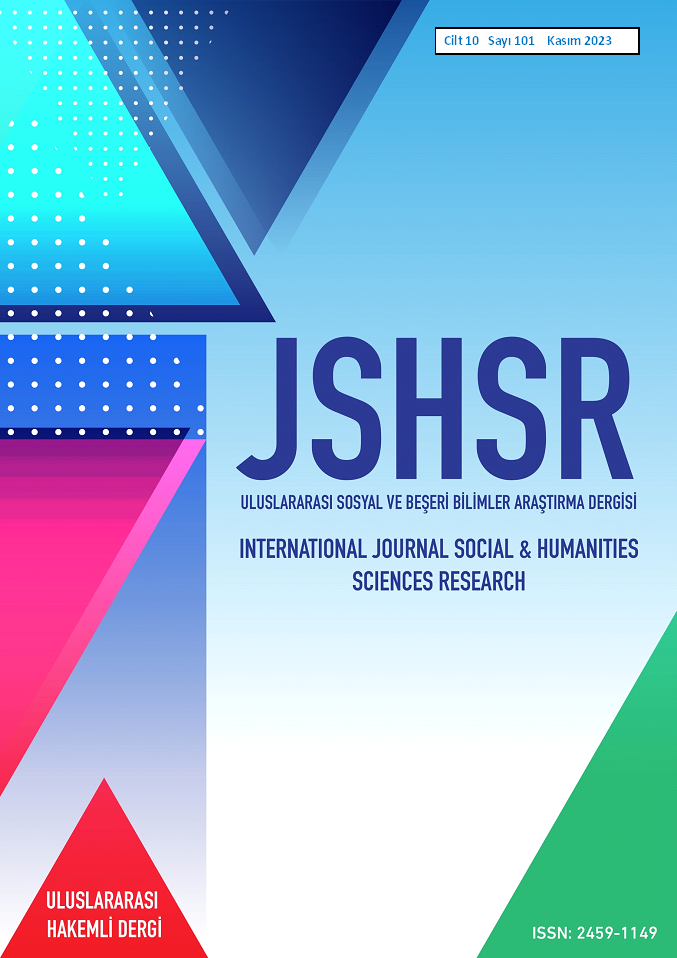Features That Homework Should Have and Its Effects on Academic Success
DOI:
https://doi.org/10.5281/zenodo.10253469Keywords:
Homework, Academic Achievement, Teachers and SchoolsAbstract
Homework has always been on the agenda as a subject that has been questioned for a long time and whose effect on academic success has been wondered. Homework has a multidimensional structure that concerns both the student, the teacher and the parent. Homework given by the teacher is of great importance in terms of reinforcing the knowledge learned at school, enabling the student to learn, supporting the student's learning outside the classroom, and providing independent study skills. On the other hand, due to homework that takes a long time and is not given in accordance with the student's interests, curiosity and abilities, it can also be the reason for a process that can lead to students becoming alienated from the course and school and even dropping out of school. As for the parent aspect of the matter; Homework represents the process of bringing the school into the home. If the student has the necessary independent skills, he does not have any problems with his parents. But if the student does not have this feature; It may cause friction, arguments and negative attitudes within the family between the family and the student. Thanks to correctly carried out and planned homework assignments, students are helped to gain the skills of responsibility, using time correctly, critical thinking, problem solving, coming to conclusions by analyzing issues and working independently. In this research, scientific articles were examined using the descriptive analysis method on the positive and negative aspects of homework, the importance it attaches to the family, and its effects on academic success. The information obtained as a result of the analysis of the data was written in the findings section. According to the findings; With good homework, the student can progress academically and achieve the success he desires by improving himself. However, it is seen that homework that is planned beyond its purpose and given above the student's learning level remains a source of stress for both the student and the family. According to the results obtained, various suggestions were made on the characteristics of good homework.
References
Alpaylar, C. (2020). Öğretmen Ve Öğrenci Gözünden Bir Ev Ödevi Portresi. Abant İzzet Baysal Üniversitesi Eğitim Fakültesi Dergisi, 20(1), 42-60.
Balli, S. J., Wedman, J. F. ve Demo, D. H. (1997). Family involvement with middle grades homework. Effects of differential prompting, Journal of Experimental Education, 66(1), 31-48.
baristuncer (t.y.). https://www.baristuncer.net/rehberlik/odev-sorumlulugunda-ailenin-rolu.html
Brophy, J. Ve Alleman, J. (1981). Inside the social studies classroom. New York: Routledge.
Cooper, H. (1989). Synthesis of research on homework. Educational Leadership, 47(3), 85-91.
Corbin, J. & Strauss, A. (2008). Basics of Qualitative Research. Techniques and Procedures for Developing Grounded Theory (3rd ed.). Thousand Oaks, CA: Sage
Duru S. ve Çöğmen, S. (2017) İlkokul-Ortaokul Öğrencileri ve Velilerin Ev Ödevlerine Yönelik Görüşleri. İlköğretim Online, 16(1), doi:10.17051/io.2017.76577
Ekici, G. (2017). Milli Eğitim Bakanlığında Ev Ödevlerinin Yeri ve Değişimi, https://rize.meb.gov.tr/rista/ caydanlik-dergi.asp sayı. 7
Güneş, F. (2014). Eğitimde Ödev Tartışmaları. Bartın University Journal of Faculty of Education, 3(2), 1-25.
Ilgar, Ş. (2005). Ev Ödevlerinin Öğrenci Eğitimi Açısından Önemi. HAYEF Journal of Education,2(1) , 119-134 .
Kalsen, C, Kaplan, İ. & Şimşek, M. (2020). İlkokullardaki Ev Ödevlerine İlişkin Yönetici, Öğretmen Ve Veli Görüşleri. Abant İzzet Baysal Üniversitesi Eğitim Fakültesi Dergisi, 20 (1), 527-547.
Keith T.Z., Reimser, T.M., Ferhmann. P., Pottebaum, S.M. (1986) Parental Involvement, Homevvork, And Tv Time. Direct and Indire ct Effects on High School Achivement. Journal of Educational Psychology, 78, 5, 373-380.
Koç Akran, S. (2021). Ev Ödeviyle İlgili Makale ve Tezlerin Sistematik Analizi. Anadolu Eğitim Liderliği ve Öğretim Dergisi, 9 (1), 74-95.
Öcal, S. (2009). İlköğretim 4. ve 5. sınıf öğrencilerinin ev ödevlerine yönelik tutumlarının oluşmasında ailelerin ve öğretmenlerin rolü. [Yayımlanmamış yüksek lisans tezi], Mustafa Kemal Üniversitesi, Hatay.
Paschal A.R. Weinstein T. Walberg, H.J. (1984). The Effects of Homevvork on Learning. A Quantitative Synthesis. Journal of Educational Research, 78, 97-104
Sullivan M.H. & Sequira P.V. (2010). The Impact of Purposeful Homework on Learning. 346-348
Susam B. ve Demir M. K. (2019). Sınıf Öğretmenlerinin Ev Ödevi Verme Kriterleri. Researcher, 7(2), 1-15.
Yıldırım, A. ve Şimşek, H. (2011). Sosyal Bilimlerde Nitel Araştırma Yöntemleri. Seçkin Yayıncılık.
Warton, P. M. 2001. The Forgotten Voices in Homework. Views of the Students. Educational Psychologist 36 (3), 155–165.
Weems, G. (1998). The Impact of Homework Collection on Performance in Intermediate Algebra. Research and Teaching in Developmental Educatio,. 5(1),21-26.
Downloads
Published
How to Cite
Issue
Section
License
Copyright (c) 2023 INTERNATIONAL JOURNAL OF SOCIAL HUMANITIES SCIENCES RESEARCH

This work is licensed under a Creative Commons Attribution 4.0 International License.


